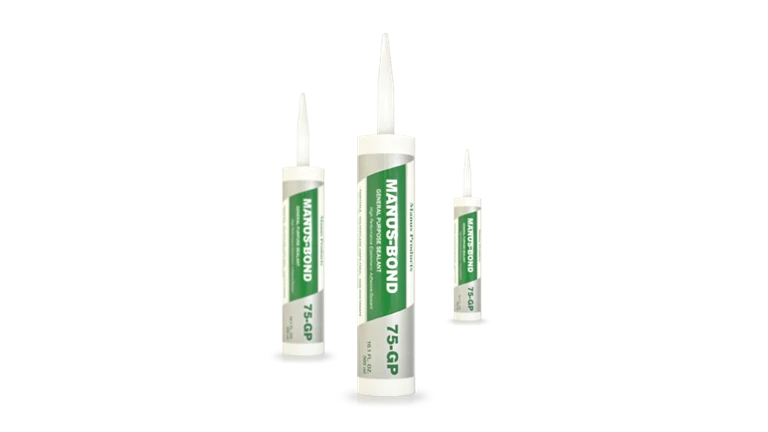Manus Products' STP Polyether lineup is engineered to deliver unparalleled performance in various settings. Key advantages include:
Exceptional Durability and Adhesion
STP Polyether products, developed by Manus Products, showcase exceptional adhesive capabilities across a diverse range of materials, encompassing metals, plastics, and composites. This broad substrate compatibility signifies a pivotal advantage, particularly in multifaceted projects where different materials intersect, eliminating the prerequisite for surface priming. This not only streamlines the application process but also reduces preparation time and material costs, enhancing overall project efficiency.
The adhesive strength of STP Polyether products is engineered to form durable, cohesive bonds that maintain integrity under various stressors. This resilience is critical in environments subjected to fluctuating temperatures, where thermal expansion and contraction can compromise the bond strength of less robust adhesives. STP Polyether formulations are designed to absorb and dissipate these stresses, ensuring the bonded assembly remains intact over time.
Moreover, exposure to moisture is a common challenge for adhesives, particularly in outdoor or high-humidity environments. Water ingress can lead to adhesive breakdown, compromising the structural integrity of the bond. Manus Products' STP Polyether technology is inherently resistant to water and humidity, forming a barrier that prevents moisture penetration. This moisture resistance extends the lifespan of the bond, safeguarding against degradation and failure.
The capability of STP Polyether products to withstand harsh environmental conditions without compromising adhesion quality or durability is a testament to their advanced formulation. This makes them an ideal choice for applications ranging from exterior construction and automotive assembly to marine manufacturing, where reliability and longevity are paramount. By providing a versatile, high-performance bonding solution, Manus Products' STP Polyether offerings cater to the evolving needs of industries demanding superior adhesive technologies that can endure the rigors of their operational environments.
Environmental Compliance
Isocyanates, commonly used in traditional adhesive and sealant formulations, are known for their potential to cause respiratory and skin irritation among workers exposed to them, especially in scenarios lacking adequate ventilation or protective measures. By eliminating isocyanates from their STP Polyether products, Manus Products significantly reduces the risk of occupational health issues, contributing to a safer working environment. This proactive approach not only safeguards the workforce but also aligns with the growing demand for products that support health-conscious practices within industries.
VOCs are another concern in adhesive and sealant formulations, primarily due to their contribution to air pollution and the formation of ground-level ozone, a key component of smog. The release of VOCs into the atmosphere during application and curing can have detrimental effects on air quality and, consequently, on public health and the environment. Manus Products' decision to formulate STP Polyether products without VOCs reflects a conscientious effort to minimize environmental impact. This VOC-free attribute significantly reduces the emission of harmful pollutants, supporting efforts to maintain cleaner air and adhere to environmental protection standards.
The exclusion of isocyanates and VOCs from STP Polyether products not only underscores Manus Products' dedication to safety and sustainability but also eases the regulatory compliance burden for businesses. As governments and international bodies tighten environmental and workplace safety regulations, the demand for compliant materials has surged. By offering products that inherently meet these stringent requirements, Manus Products enables clients to navigate the regulatory landscape more smoothly, avoiding the complexities and costs associated with managing hazardous substances.
Versatility Across Applications
The flexibility of STP Polyether is a critical attribute, especially in applications where materials are subjected to movement, expansion, or contraction. In the construction industry, for example, sealants must accommodate the natural shifting and settling of buildings over time. STP Polyether's ability to maintain its integrity and adhesion, despite these movements, ensures long-term durability of seals and joints, preventing water ingress and structural damage.
Chemical resistance is another standout feature of STP Polyether, making it suitable for environments where exposure to harsh chemicals, oils, or solvents is common. This resistance is paramount in industries such as manufacturing, where adhesives may come into contact with a variety of substances during the production process. STP Polyether ensures that bonds remain secure and surfaces protected, even when exposed to potentially degrading chemicals.
Ease of Use
The formulations of Manus Products' STP Polyether range are specifically developed to accommodate both manual dispensing and automated equipment. For manual applications, the product consistency is engineered to allow for smooth, controlled extrusion from cartridges or tubes, requiring minimal effort for a precise and clean application. This versatility ensures that workers can apply the product efficiently in a range of settings, from tight spaces within construction projects to intricate parts in automotive assembly.
A significant advantage of Manus Products' STP Polyether sealants and adhesives is their ability to cure at room temperature. This property eliminates the need for specialized curing equipment, such as ovens or UV light systems, which can represent a considerable investment and operational expense. Room temperature curing not only simplifies the installation process but also accelerates the completion of projects by reducing downtime. Once applied, the product begins to cure, reaching full strength within a predetermined timeframe without the need for external energy sources.
This characteristic is particularly beneficial in environments where the use of additional equipment is impractical or impossible, such as in field applications or in settings with limited access to power. It also contributes to a safer work environment by reducing the risks associated with handling and operating curing equipment.



